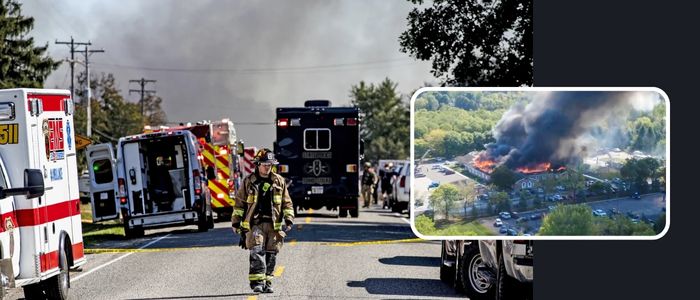In dealing with finding regulatory changes, the Nuclear Regulatory Task Force proposed a "one-stop shop" which would entail bringing nuclear decisions under the court process and under one regulatory framework to deal with the identification of regulatory changes deemed necessary.
It indicated that a "radical reset" of current policy could save the UK "tens of billions" and provide some impetus to a declining sector. This was seen as imperative, with the UK being on a path to expansion of nuclear capacity taking nuclear forward responds to a long-term energy supply requirement and could help with achievement of any net zero targets in the future.
New forms of nuclear generating capacity are already being developed. Hinkley Point C construction in Somerset is underway, and it is predicted that the plant will be generating electricity by the early 2030s. Another new plant, Sizewell C, is also planned later in the decade.
The plant is expected to generate enough electricity to power In addition to this, the UK is developing smaller-scale nuclear power stations that have the potential to be built at a faster rate and provide more adaptable support to the energy grid.
The task force found that the planning system is fragmented and painfully slow. Multiple bodies supervise different elements of a project, leading to delays and increased costs. The report found that the UK's own rules governing nuclear energy risks are significantly more conservative than international guidelines, and as a result, there are costs that are unnecessarily incurred in the UK.
For example, the report found "overly conservative" requirements for the levels of ionising radiation to which workers can be exposed, which were seen to add additional costs and bureaucracy.
The review also noted that the fragmentation of decisions dams "conservative and costly decisions that are not proportionate to the risk actually being mitigated." A move to more consistent nuclear regulation with international norms is seen as a useful way to reduce unnecessarily conservative and costly measures, while maintaining safety protections.
Nuclear Power Seen as Critical Source of Future Energy Security
The taskforce stressed that Nuclear Bomb Energy (NBE) was of crucial importance to the future of the country. Nuclear plants continue to generate electricity by producing heat via atomic reactions. This energy source is seen as vital in the long-term trajectory of demand and the transition to low carbon energy systems. If drastic measures are not taken, the UK will miss to the "worldwide nuclear renaissance", with other countries increasing nuclear capacity more rapidly.
The review warned that in the event of delays and high costs, the UK risks being unable to compete in the growing global market for nuclear technology and infrastructure. An efficient decision making system is vital to enable future energy independence and a stable supply.
Taskforce chair John Fingleton described these issues as big but essential for change. The report also noted that when the regulations are simplified, they can "maintain or enhance safety standards whilst delivering nuclear capacity in a safe, timely and affordable way."
Ultimately, their assessment found that reform would lead to an acceleration of the UK's development of nuclear plants, lower long-term delivery costs, and position the UK favourably within the global energy transition.
Top

UK Becomes Costliest Nation for Nuclear Development

The Government undertook a review and found the UK is the "most expensive place in the world" to develop new nuclear power stations, and it made a number of recommendations, but in particular, it found an "overly complicated" regulatory regime which has resulted in delays and costs increases across the sector. This was commissioned by the newly elected Prime Minister, Sir Keir Starmer, who noted that important changes to regulatory regimes "are needed to simplify decision making and speed up the delivery of future nuclear projects".











